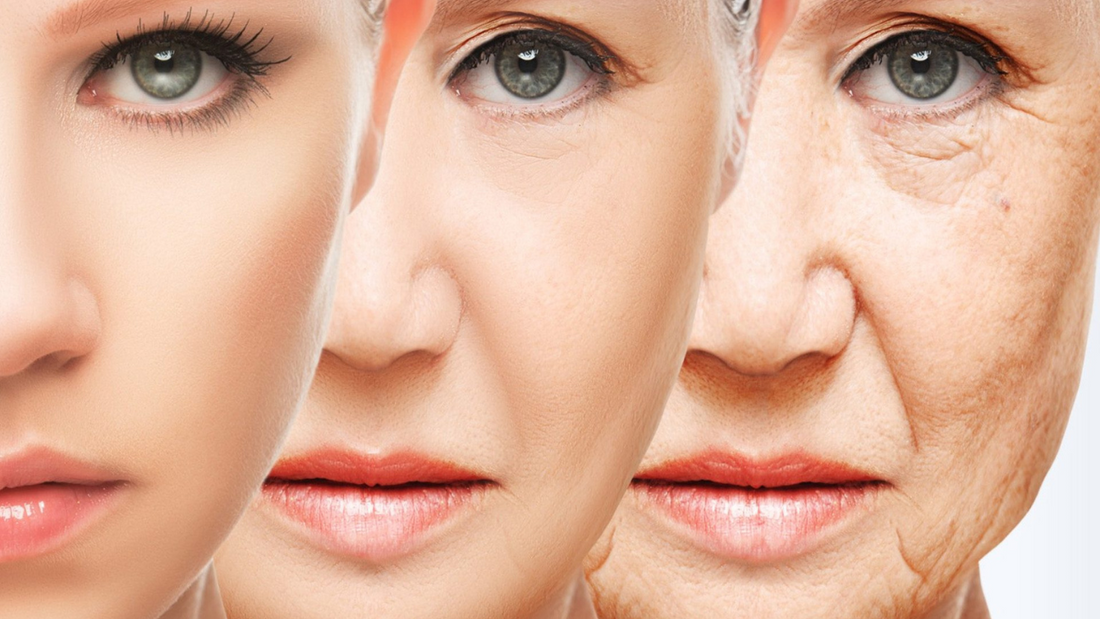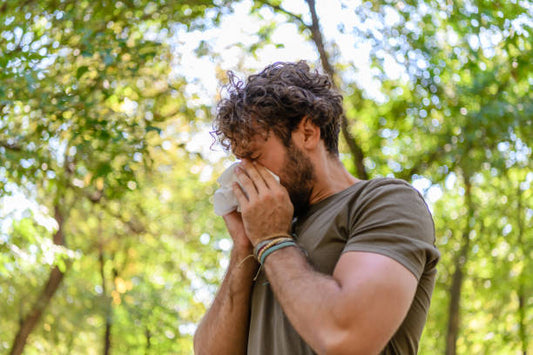Various physical, mental, and emotional changes can emerge from the natural process of aging. Among the most common signs of aging are the following:
- Cognitive decline is characterized by memory loss, difficulty concentrating and making decisions, and slower mental processing speed.These can include diminished physical mobility, weakened muscles, and altered coordination.
- Decreased immune function: With age, the body's ability to combat infections and diseases may diminish.
- As we age, our likelihood of developing chronic health disorders such as heart disease, arthritis, and diabetes may increase.
- Depression and anxiety may become increasingly prevalent as we age. As we age, we may experience changes in our sleep patterns and quality.
Although these symptoms are a normal aspect of aging, some individuals may feel them more than others. Bacopa is a herb extensively utilized in traditional Ayurvedic medicine for its possible benefits in promoting healthy aging. Some studies suggest that Bacopa may support healthy aging by improving cognitive function, memory, and mental clarity, as well as by possessing antioxidant and neuroprotective properties. Bacopa should not, however, be used in place of traditional medical treatment for any health issue.
History
Bacopa, also known as Brahmi, is a perennial herb native to India and other Southeast Asian countries. The plant is a member of the Scrophulariaceae family and is typically found in wet, marshy regions. Bacopa has been used in Ayurvedic medicine, a traditional Indian system of medicine, for thousands of years to improve cognitive function and memory, and to treat a variety of conditions, including anxiety, epilepsy, and asthma.
Ancient Ayurvedic texts, including the Charaka Samhita and the Sushruta Samhita, describe the use of Bacopa to enhance memory and cognitive function. The herb is considered a "Medhya Rasayana," which indicates that it is believed to promote mental and intellectual health. It was traditionally used to enhance students' memory, concentration, and learning capacity.
Bacopa has been the subject of numerous studies investigating its potential cognitive-enhancing effects in recent times. It has been found to be especially effective at enhancing memory recall and cognitive function in older adults with cognitive decline due to aging. In addition to treating anxiety and depression, it is also used to treat ADHD and improve attention.
Bacopa has a long history of use in traditional medicine, and its potential cognitive-enhancing effects, particularly in the aging population, continue to be investigated.
How it works
Although the precise mechanisms by which Bacopa may promote healthy aging are not well understood, there are various hypotheses as to how it may function.
According to one idea, Bacopa may have antioxidant capabilities that protect the body from oxidative stress. When there is an imbalance between the generation of free radicals and the body's ability to neutralize them, oxidative stress results. This damage may accumulate over time and contribute to the aging process.
According to a second notion, Bacopa may have neuroprotective properties, which may protect the brain and promote healthy aging. According to a number of studies, Bacopa may protect the brain from oxidative stress and inflammation, both of which can contribute to age-related cognitive decline.
Enhancing cognitive function, memory, and mental clarity, Bacopa may also promote a healthy aging process. Some research suggest that Bacopa may increase cognitive performance, notably in memory, attention, and processing speed.
It is crucial to remember that although Bacopa has been used for centuries in traditional medicine, the exact mechanisms through which Bacopa may support healthy aging are still being investigated, and additional research is required to fully understand its advantages and hazards. Furthermore, Bacopa should not be used in place of traditional medical treatment for any health issue.
Studies and Results
Several studies have investigated the possible benefits of Bacopa for promoting healthy aging, but additional research is necessary to completely comprehend its effects.
In a study published in the Journal of Ethnopharmacology, 56 healthy adults between the ages of 40 and 65 were randomly allocated to receive either Bacopa extract or a placebo. For 12 weeks, participants consumed 300 mg of Bacopa extract or a placebo twice daily. In comparison to placebo, Bacopa increased memory recall, information processing speed, and executive function.
In a separate study published in the journal Phytotherapy Research, 40 healthy senior citizens were randomly allocated to receive either Bacopa extract or a placebo. For 12 weeks, participants received 300 mg of Bacopa extract or a placebo once daily. In comparison to placebo, Bacopa increased memory recall, attentiveness, and mental processing speed.
While these trials imply that Bacopa may have potential benefits for promoting healthy aging, additional research is necessary to fully understand its effects, including appropriate dosages and long-term safety. Furthermore, Bacopa should not be used in place of traditional medical treatment for any health issue. If you are contemplating taking Bacopa, you should consult a healthcare expert to discover if it is appropriate for you and to confirm that you are taking the correct dosage.
Recommended Dosage
The recommended dosage of Bacopa can vary based on the product you're using and the condition you're attempting to treat. It is essential to adhere to the dosage instructions on the product label or those provided by your healthcare provider.
In general, 300-450 mg per day of a standardized Bacopa extract containing 55% bacosides, the active compounds in Bacopa, have been used in the majority of studies. It has been determined that these doses are safe and effective for enhancing memory and cognitive function.
Bacopa is not recommended for children, women who are pregnant or breastfeeding, or those with severe liver or kidney disease. Additionally, it is crucial to begin with lower doses and gradually increase them over time. It is also recommended to take Bacopa with food, as taking it on an empty stomach may cause stomach upset.
Before beginning to take Bacopa, it is always a good idea to consult with your healthcare provider, especially if you are taking other medications or have preexisting medical conditions.
Conclusion
Bacopa is a traditional herb that has been used for thousands of years to improve cognitive function and memory in Ayurvedic medicine. The herb is considered a "Medhya Rasayana," which indicates that it is believed to promote mental and intellectual health. According to studies, Bacopa may be especially effective for enhancing memory recall and cognitive function in older adults with age-related cognitive decline.
Importantly, the recommended dosage of Bacopa may vary depending on the specific product being used, and it should always be taken under the supervision of a medical professional. It is contraindicated for children, women who are pregnant or breastfeeding, and those with severe liver or kidney disease.
References
- Roodenrys S, Booth D, Bulzomi S, Phipps A, Micallef C, Smoker J. Chronic effects of Brahmi (Bacopa monnieri) on human memory. Neuropsychopharmacology. 2002;27(2):279-281. doi:10.1016/s0893-133x(01)00343-4
- Stough C, Lloyd J, Clarke J, Downey LA, Hutchison CW, Rodgers T, Nathan PJ. The chronic effects of an extract of Bacopa monniera (Brahmi) on cognitive function in healthy human subjects. Psychopharmacology (Berl). 2001;156(4):481-484. doi:10.1007/s002130100815
- Rauwolfia serpentina (Rauwolfia) Monograph. Alternative Medicine Review [serial online]. September 2002;7(5):421-424. Available from: CINAHL Plus with Full Text, Ipswich, MA.
- Peth-Nui T, Wattanathorn J, Muchimapura S, et al. Effects of 12-week Bacopa monnieri consumption on attention, cognitive processing, working memory, and functions of both cholinergic and monoaminergic systems in healthy elderly volunteers. Evidence-Based Complementary and Alternative Medicine : eCAM. 2012;2012:606424. doi:10.1155/2012/606424




